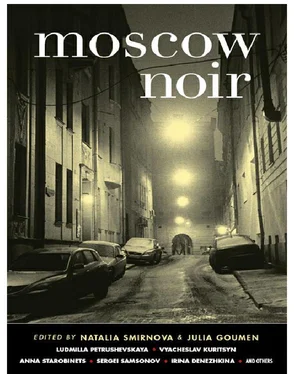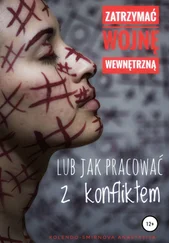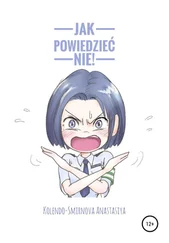Vasily learned all this later, after college, when he ran into one of his old classmates at a bar. The classmate worked in the chemical industry and had traveled to Dagestan, where he learned everything about their old classmate and her baby girl. It turned out by then that the apparent epilepsy was actually a form of appendicitis. Once they cut out the appendix the girl’s suffering ended. Vasily by this time had forgotten all about his former girlfriend, and one thing he really didn’t want to hear about was children: his own wife had had a miscarriage in her sixth month. She lay in the hospital and their little baby was placed in an incubator, where for a month it lived, if it can be called that; the thing was half a pound, a packet of cottage cheese—it died and they weren’t even allowed to bury it, it didn’t even have a name, they were forced to leave the body at the institute.
Their torture lasted the entire month. His wife’s milk came, she went to the hospital four times a day to get her breasts pumped, but they didn’t necessarily give it to their little packet of cottage cheese; there were other babies, even better connected, and one of them survived despite being born at five and a half months. His wife couldn’t keep an eye on everyone, she wasn’t even allowed into the incubator room, she wasn’t even allowed to look at their little baby, even when it died, and after that she moaned and shook with tears day and night. The father-in-law also tried, gave gifts to the nurses, but they still couldn’t obtain the little corpse. The father-in-law didn’t know that he should bribe the boiler-room lady, she would have gladly avoided doing the dirty deed for a half-liter of vodka—she wasn’t paid extra for getting rid of corpses, about which she, half-drunk, once raised a stink in the payroll department.
In short, Vasily lived in this family of strangers, alone, his wife aggravated him terribly with all her crying, and he felt sorry for himself too, a child would have been just the thing, there would have been at least one person close to him in this world. But he kept quiet about his wish for a child, that’s just how he was. His wife practically burst out of her skin to get pregnant again but Vasily was very careful, he guarded his sperm like the apple of his eye.
Shortly after the wedding, the wife’s parents bought an apartment for their daughter and registered it in her name. Should anything happen, Vasily would get nothing—the property was an officially notarized loan to the wife from her parents, and that was that. The wife’s parents had covered all the bases; the only thing they didn’t understand was that they couldn’t keep winding the coil, one day it would spring back with all the pressure they’d put on it.
Finally Vasily’s wife got pregnant—in the end her desire for a baby, to wipe out the memory of their little packet of cottage cheese, was just too strong, and in cases like that, no matter how hard you try, the woman will think of something. She’ll get you drunk, or drug you, or do it with someone else. And sometimes the husband himself loses control. In short, they had a daughter (that other one, the first, would have been a son); they called her Alyonoshka, their little sunshine, and she grew up before him, all black hair and brown eyes, his very own daughter entirely, because her mother, Tamara, was as white as a moth. Vasily loved his little girl. Even on the night of the murder, on a snowy New Year’s Eve, when his wife was almost dead and the girl started crying, he came to her and sang her back to sleep, then returned to the bathroom and finished the hammering, smashed all the bones in her face and cut off her fingers so no one could identify her.
It should be said that Vasily had a big plastic bag at the ready, the kind used for storing furs, but how he got rid of all the blood, no one knows. Maybe he placed Tamara under a cold shower, but somehow or other there was no trace of blood. He wrapped her in a tablecloth—he later explained all this to the police—then stuffed her in the bag and threw it off the balcony into the blizzard (the snowstorm lasted all night). Vasily put his wife’s fingers in his overcoat—he’d somehow managed to remove them without making a lot of noise, apparently he just cut them right off. He took his daughter’s sled, tiptoed quietly downstairs, loaded the body on the sled, and took it over to the construction site next door, where because of the holiday no one was working. He hid the body in the snow at the site, down in the foundation pit, and stuck the fingers into a pipe, then began waiting for spring, to see if he’d be arrested.
He called the police to report that his wife had gone missing. Of course no one believed him. His father- and mother-in-law told the police all about his life with their daughter, and his coworkers informed them that Vasily was having an affair with an awful witch who kept him on a short leash and squeezed him for money but refused to marry him, because if he left his wife he’d be back in his single suit of clothes and he was thirty-two years old. Even the car that his father-in-law had arranged for him was registered as a loan to his wife. They’d surrounded him from all sides; nothing in the world belonged to him.
But now at least, after his wife’s death, he’d have four months of peace until the snow melted—and it was also possible that her body had been buried deep beneath the cement of the new building. Not long after the murder he’d strolled over to the construction site to see if he could find his burial plot, and he couldn’t; there were building materials everywhere, and everything was covered in snow.
The wife’s parents took their granddaughter to live with them, while Vasily was questioned on multiple occasions by a female police investigator. He kept insisting that he and his wife had gotten along poorly, that they’d had a bad fight on New Year’s Eve, that she had dressed and gone to her parents’, but that he had forbidden her from waking up their little girl.
At long last the snow melted. Nothing happened; the body of his wife was not found.
But one day in early June, Vasily showed up at the police station to tell the investigator that he’d murdered his wife. The investigator demanded that he prove it, at which point he led her and a team of investigators to the construction site, where workers had almost finished erecting the new buildling. The investigators couldn’t find the body, however, and there was no proof of the murder: no one had seen a body or a bag flying from the window on that busy New Year’s Eve, nor had they seen a sled, nor anything else Vasily described. He was not taken into custody. People did start saying that his conscience was getting the best of him, which is why he’d confessed, and why he’d abandoned his awful mistress—that is to say, he had changed.
Awhile later, Vasily called his father- and mother-in-law and told them that there was a finger with red nail polish sticking out of the faucet. His father-in-law responded that if Vasily had put Tamara’s fingers into a pipe, as he claimed, and this turned out to be part of the plumbing for the new building, then in the month since the building had been finished the finger would have dissolved, or swelled up, and it certainly couldn’t have traveled all the way through the water filter, and in any case what does the water system in the new building have to do with their building, which was built long ago? That’s what the father-in-law said to him, to calm him down, but this just made Vasily more anxious. Naturally, when the wife’s parents came over, they found nothing. Vasily said he was afraid to go into the bathroom; that the finger had probably disappeared down the drain.
And as proof, he showed his parents-in-law a flake of red nail polish that he’d found on the floor. But this didn’t prove anything, the parents said: so he found some red nail polish, big deal, many women had probably visited their home. And so Vasily still lives by himself, like an outcast, and still finds strands of hair and other evidence of his crime, and collects it all, as he gradually builds the case against himself.
Читать дальше












